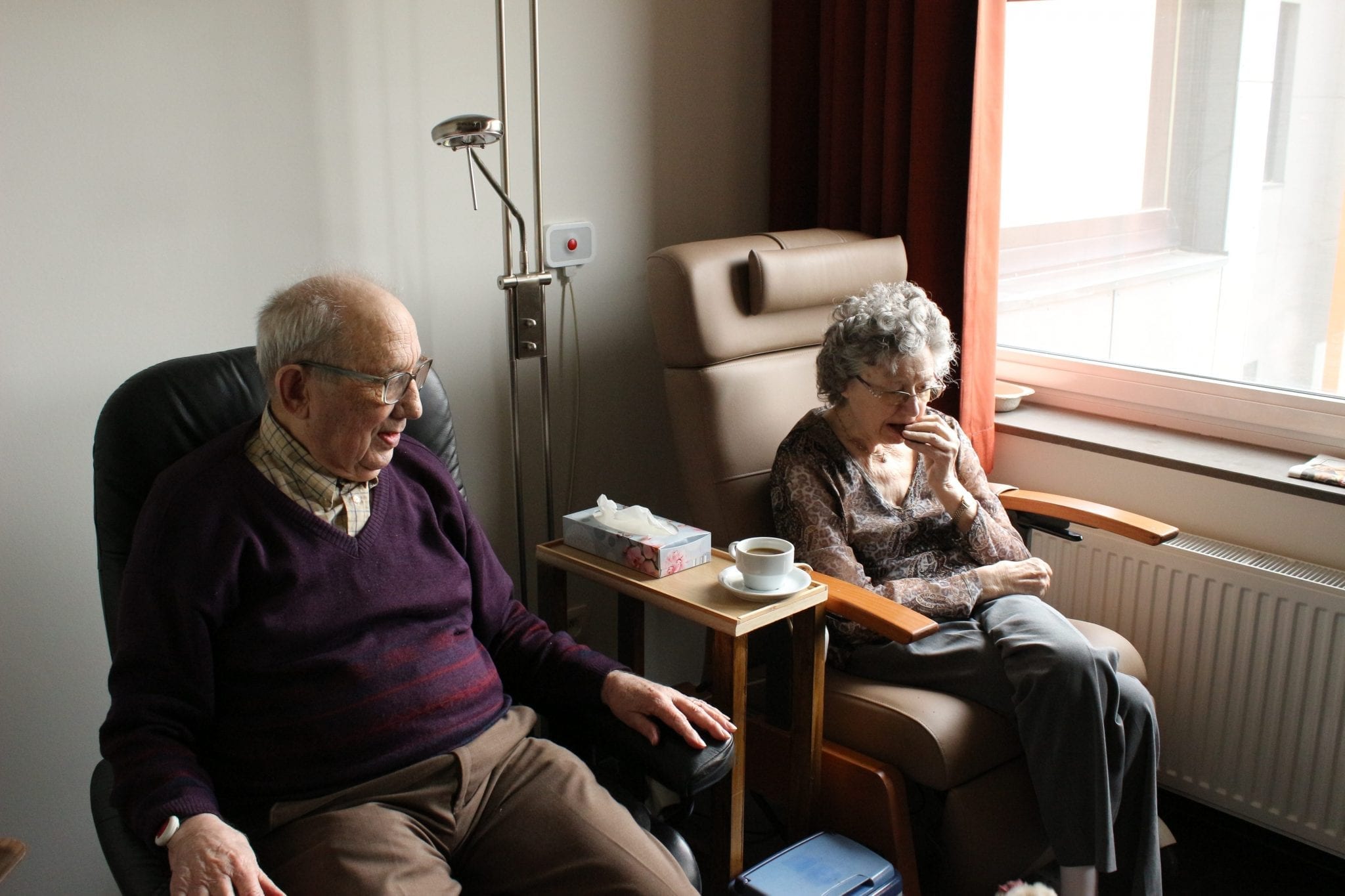The economic deterrent behind a civil lawsuit is supposed to disincentivize understaffing and negligence, and improve care for future residents.
Florida is dedicated to ensuring the safety and well-being of its nursing home residents through a comprehensive regulatory framework. The state’s regulatory agencies and laws aim to maintain high standards of care, protect resident rights, and provide oversight to nursing homes. At Senior Justice Law Firm, our Florida nursing home abuse attorneys regularly work with Florida agencies to obtain corporate control documents, and to report nursing home negligence.
In this article, we will explore how Florida regulates its nursing homes, including the key regulatory bodies, licensing requirements, inspection processes, complaint investigations, and initiatives that contribute to improving the quality of care for vulnerable residents. We also examine the shortcomings in Florida’s administrative oversight of nursing homes.
If your loved one was abused, neglected, or harmed inside a Florida long term care facility, contact the narrowly focused Florida nursing home litigators at Senior Justice Law Firm today for your free case consultation, and advice on what to do next: 888-375-9998.
Florida Agency for Health Care Administration (AHCA) and Licensing
The Florida Agency for Health Care Administration (AHCA) is responsible for the licensing and regulation of nursing homes in the state. AHCA ensures compliance with state and federal laws through the issuance and maintenance of licenses. Nursing homes must meet specific criteria related to staffing, health and safety standards, resident care, and quality of life to obtain and retain their licenses. Regular inspections and surveys are conducted to assess compliance and quality of care. Inspections and surveys can also be triggered if a family member complains to AHCA of poor nursing home care.
State of Florida and Federal Regulations Dealing with Florida Facilities
Florida nursing homes must adhere to both state and federal regulations.
State regulations, found in Chapter 400 of the Florida Statutes, outline the requirements for nursing home operations, including licensure, resident rights, staffing ratios, infection control, dietary services, and more.
Federal regulations under the Centers for Medicare and Medicaid Services (CMS) also establish minimum standards for nursing home care. Compliance with these regulations ensures the delivery of quality care and eligibility for federal funding.
Inspection and Survey Process for Florida Nursing Homes
AHCA conducts routine inspections and surveys of nursing homes to assess compliance with regulations. These surveys, known as the standard survey process, evaluate various aspects of care, including resident rights, nursing services, medication administration, infection control, and the physical environment. Trained surveyors conduct interviews with residents, families, and staff, review records, and observe daily operations. The findings determine compliance and may lead to citations, fines, and required corrective actions.
Complaint Investigation and Enforcement
Florida’s AHCA investigates complaints filed against nursing homes to protect residents and ensure compliance with regulations. Complaints can be submitted by residents, families, staff, or concerned individuals. AHCA initiates an investigation, which may involve on-site visits, interviews, and record reviews. If deficiencies are identified, AHCA takes appropriate actions, including fines, penalties, license revocation, or the imposition of corrective measures to address the issues and ensure resident safety.
Quality Improvement Initiatives for Florida Skilled Nursing Facilities
Florida actively promotes quality improvement initiatives in nursing homes. Programs such as the Quality Improvement Organization (QIO) collaborate with facilities to enhance care delivery, reduce hospitalizations, and improve resident outcomes. QIOs offer education, training, and technical assistance to nursing homes, supporting the implementation of evidence-based practices and fostering a culture of continuous improvement. These initiatives focus on resident-centered care, staff development, and enhancing the overall quality of care.

Public Reporting and Transparency
Florida emphasizes transparency by providing public access to nursing home information and performance ratings.
The FloridaHealthFinder website allows individuals to search for licensed nursing homes, review inspection reports, compare performance indicators, and access information about resident rights and complaints. This transparency empowers consumers to make informed decisions when selecting a nursing home and holds facilities accountable for maintaining high standards of care.
Civil Lawsuits Are a Bigger Deterrent to Substandard Nursing Home Care Than Agency Investigations
Sadly, AHCA and the Florida Ombudsman are not adequately equipped to combat the rising tide of nursing home negligence in Florida. This is not our subjective belief. It is written by the Florida Legislature into the law that governs Florida’s nursing homes.
Florida’s Chapter 400, which regulates nursing homes, provides aggrieved families with a private cause of action for nursing home negligence. The Florida legislature recognized the shortcomings of AHCA and other government agencies in Chapter 400.
The Florida Legislature bluntly stated that AHCA and the Ombudsman cannot ensure residents are safe, and that the owners of these long-term care facilities cannot be trusted to do the right thing. For this reason, our Florida Legislature specifically gave families the right to sue nursing homes, because this is the biggest deterrent to nursing home neglect:
400.0061 Legislative findings and intent; long-term care facilities.—
(1) The Legislature finds that conditions in long-term care facilities in this state are such that the rights, health, safety, and welfare of residents are not fully ensured by rules of the Department of Elderly Affairs or the Agency for Health Care Administration or by the good faith of owners or operators of long-term care facilities. Furthermore, there is a need for a formal mechanism whereby a long-term care facility resident, a representative of a long-term care facility resident, or any other concerned citizen may make a complaint against the facility or its employees or against other persons who are in a position to restrict, interfere with, or threaten the rights, health, safety, or welfare of a long-term care facility resident. The Legislature finds that concerned citizens are often more effective advocates for the rights of others than governmental agencies. [emphasis added]
It is well accepted that nursing home lawsuits lead to better care. Unfortunately, even if you are uninterested in recovering money damages, oftentimes it is the bringing of a civil lawsuit against a nursing home which catalyzes change inside the facility.
Conclusion: Florida’s Nursing Home Agencies Try, But Cannot Effectively Get the Job Done
Florida’s regulatory framework demonstrates its commitment to ensuring the well-being and safety of nursing home residents. Through agencies like AHCA, rigorous licensing requirements, comprehensive inspection processes, complaint investigations, quality improvement initiatives, and public reporting, Florida strives to regulate and improve nursing home care. These efforts aim to enhance the quality of life for residents, uphold resident rights, and foster a culture of accountability and continuous improvement in the state’s nursing homes.
However, as recognized by the Florida Legislature, AHCA is unable to effectively police nursing homes and ensure the safety and welfare of vulnerable residents. Further, the Legislature recognizes that, left to their own devices, nursing home owners will not always act in the interest of the resident.
This is why Florida allows families to bring nursing home lawsuits for poor care. The economic deterrent behind a civil lawsuit is supposed to disincentivize understaffing and negligence, and improve care for future residents.


Join the conversation!